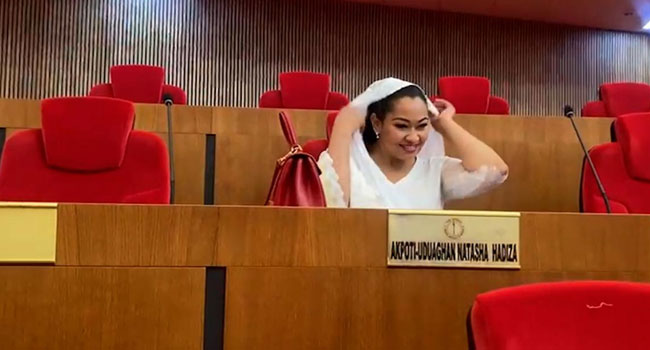
Senator Natasha Akpoti-Uduaghan, the lawmaker representing Kogi Central has failed to appear before the Senate Committee on Ethics, Privileges, and Public Petitions over her conduct during the plenary last week.
It was gathered that Akpoti-Uduaghan was expected to appear before the committee on Wednesday, March 5, for a hearing on the investigation.
However, after her appearance at the Senate plenary today, the female lawmaker failed to attend the scheduled probe session.
Recall that Akpoti-Uduaghan was engaged in a heated argument with the Senate President, Godswill Akpabio over reassignment of her seat during last week’s plenary.
The female lawmaker had publicly accused the Senate President of intimidating and preventing her for duly representing her people in the Senate.
According to her, Akpabio’s action against follows the refusal of his sexual advancement towards her.
Subsequently, the Kogi lawmaker also obtained a court order mandating the Senate to stand down the probe by the ethics committee over her conduct at the Red Chamber last week.
Speaking on her failure to appear before the committee, the chairman, Neda Imasuen said her absence at the panel is embarrassing.
“Senator Natasha was duly invited to this meeting. We hope she will join us as we continue,”Imasuen said.
